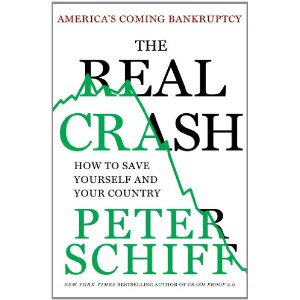Only free men can negotiate; prisoners cannot enter into contracts. Your freedom and mine cannot be separated. –Nelson Mandela
More on Prisoner’s Dilemma: http://perspicuity.net/sd/pd-brf.html
Chapter 8: Games Companies Play: A Structured Approach to Competitive Strategy, Part 1: The Prisoner’s Dilemma Game
QUESTION: Describe in a few sentences the dynamics of a prisoner’s dilemma game with two competitors of a similar size and the likely equilibrium in the real world of Lowes and Home Depot.
The essence of price competition among a restricted number of companies is that although there are large joint benefits to cooperation in setting high prices, there are strong individual incentives for firms to undermine this cooperation by offering lower prices and taking business away from the other competitors.
Competitive situations of this sort take the name of prisoner’s dilemma because they imitate the choices faced by two or more accused felons. If those, who participate in a criminal activity, are caught, and are then interrogated separately–if they all cooperate with one another and refuse to confess–there is a strong probability that they will bear the charge, and they can expect a light sentence. But each of them can negotiate a deal with the police for even less jail time if he confesses and testifies against his confederates. The worst case is for an accused to maintain his innocence but have one of his confederates confess. Given these alternatives, there is a powerful temptation to abandon the group interest and confess.
Regarding Lowes and Home Depot, who face a prisoner-like dilemma in how they interact and respond to each other, for every issue, the outcome of any action by Lowes depends upon how Home Depot chooses to respond and vice versa.
Assume that the offerings of these competing firms are basically equivalent, then, so long as they charge the same for their product, the competitors divide the market equally. If they all charge a high price, relative to their costs, then they all earn high profits. If they all charge a high price, relative to their costs, then they all earn high profits. If they all charge a low price, they will divide the market, but now each of them earns less. However, if one firm decides to charge a low price while others charge more, we can assume that the firm with the low price captures a disproportionately large share of the market. If the additional volume more than compensates for the smaller profit per unit due to the lower price, then the firm that dropped its price will see its total profits increase. At the same time, the firms that continue to charge a high price should see their volume drop so much that their profits will be less than if they also charge the low price.
So it is no wonder that to maintain their cooperative position is difficult, both for the accused felons and for competitive firms. The usual outcome is what referred to in game theory as a “non cooperative equilibrium.”
Equilibrium
Equilibriums are outcomes that are stable because no competitor has an obvious incentive to change its action. These equilibriums depend on two conditions:
Stability of expectation
Each competitor believes that the other competitors will continue to adhere to their present choices among the possible sources of action
Stability of behavior
Given the stability of expectations, no competitor can improve its outcome by choosing an alternative course of action. These two conditions work together; if no competitor has a motive to change its current course of action (stability of behavior), than no change will occur, confirming the stability of expectations. The most common form of competitive interactions is where there are large joint benefits from cooperation but strong individual incentives to deviate.
—
The reply to the second question on Chapter 8 will be posted next in Part 2











